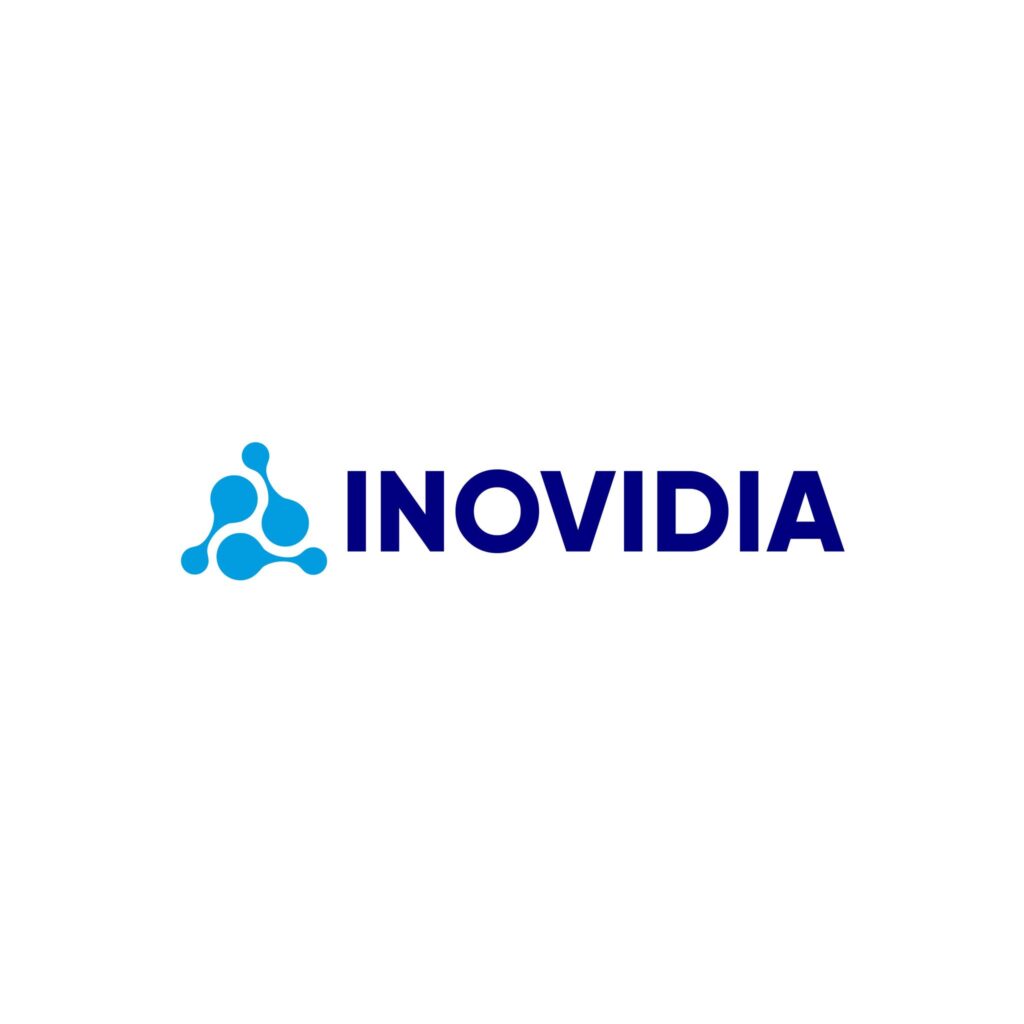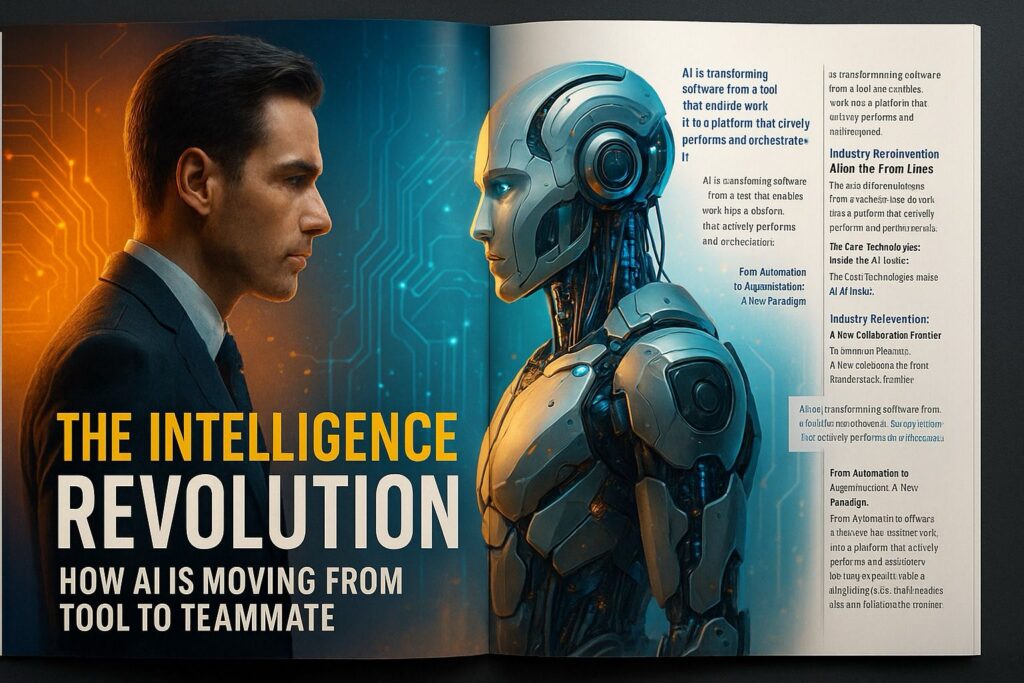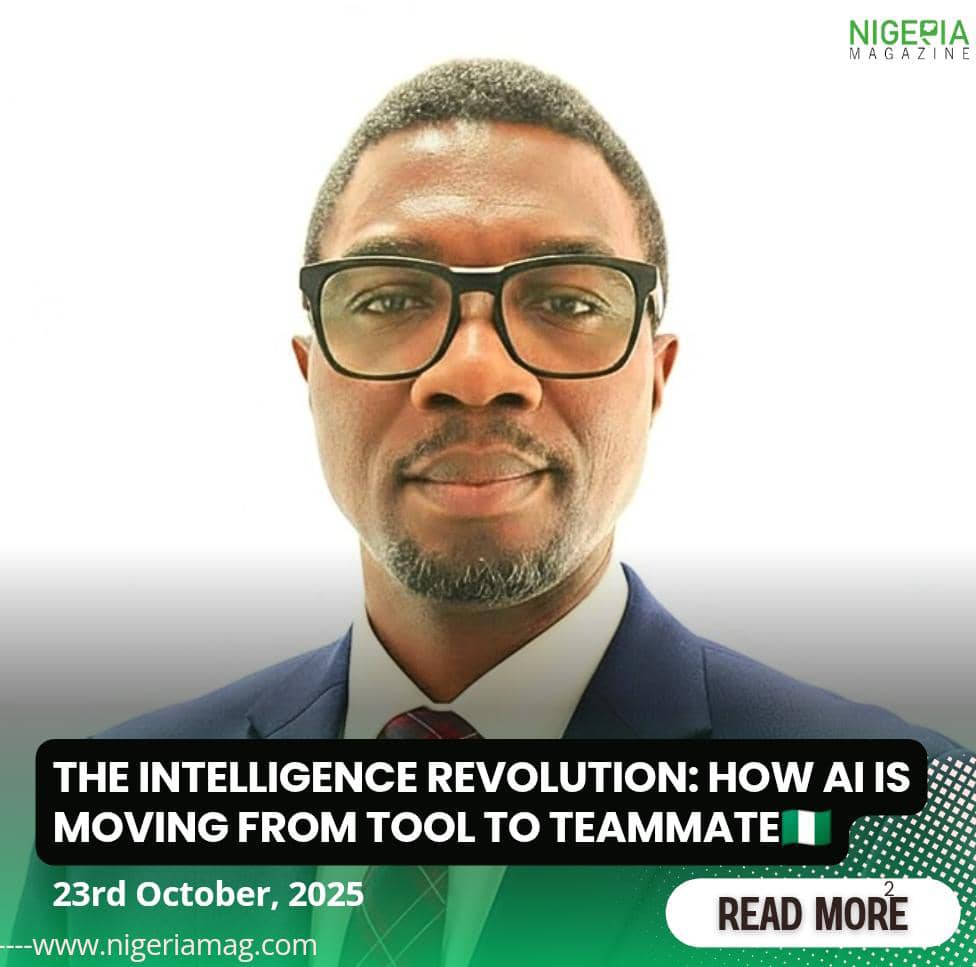By Charles Igbelekotor
For the past decade, “digital transformation” has been the mantra of the modern enterprise. It was a race to digitize, to move to the cloud, to automate. But that era is over. Today, a more profound shift is underway, one that moves beyond mere process automation to genuine process intelligence.

Artificial intelligence is no longer an add-on to digital strategy—it is the driving force behind it. AI is reshaping operations, redefining customer engagement, and powering a new generation of innovation.
This isn’t just about making businesses faster;
it’s about making them smarter. AI is transforming software from a tool that enables work into a platform that actively performs and orchestrates it. We are entering the age of the intelligent enterprise, where the most valuable asset isn’t just data, but the collaboration between human ingenuity and machine intelligence.
From Automation to Augmentation: A New Paradigm
The initial promise of AI in business was simple: automation. Bots could handle repetitive, time-consuming tasks, freeing up human workers for higher-value activities. While this remains important, the conversation has evolved from automation to augmentation.

The new paradigm views AI as a partner—a collaborator that enhances human capabilities rather than simply replacing them. This partnership creates a state of “superagency,” where individuals, empowered by AI, can supercharge their creativity and productivity.
By handling the rapid analysis of vast datasets—the “what”—AI allows humans to focus on the “why,” delving into complex, context-dependent questions that lead to breakthroughs. This synergy is enabling one of the most critical shifts in modern business: moving from reactive problem-solving to proactive and predictive strategies. AI systems analyze historical and real-time data to anticipate market trends, forecast supply chain disruptions, and predict customer needs before they arise.
The Core Technologies: Inside the AI Toolkit
The AI revolution is powered by a suite of core technologies, each playing a distinct but interconnected role.
● Machine Learning (ML): The predictive brain of AI. ML algorithms learn from data to identify patterns and make predictions without being explicitly programmed. It powers everything from spam filters to stock market forecasts.
● Natural Language Processing (NLP):Bridging the human-machine communication gap, NLP enables computers to understand and generate human language. It powers chatbots, voice assistants, and sentiment analysis tools.
● Computer Vision: Giving machines the power of sight, computer vision interprets and understands visual information from images and videos. From facial recognition to automated quality control, it translates the physical world into data.
● Generative AI (GenAI): The creative spark in the AI toolkit. Powered by large language models, it can generate text, images, code, and even molecular structures, redefining creation itself.
Industry Reinvention: AI on the Front Lines
Manufacturing – The Autonomous Factory
AI is the cornerstone of Industry 4.0, transforming factory floors into intelligent, self-optimizing ecosystems.
● Predictive maintenance reduces downtime and cuts costs.
● AI-driven quality control detects defects with superhuman accuracy.
● Engineers, not just IT departments, are deploying autonomous systems on the plant floor.
Healthcare – From Treatment to Predictive Wellness
AI is shifting healthcare from a reactive to a proactive model.
● Generative AI accelerates drug discovery, potentially saving billions annually.
● Algorithms analyze scans with accuracy rivaling human specialists.
● NLP extracts insights from patient records, improving clinical decision support.
Finance – The Intelligent Ledger
In finance, speed and precision are everything—and AI delivers both.
● Algorithmic trading adapts in real time.
● Fraud detection systems flag anomalies within seconds.
● Conversational AI democratizes financial advice for everyday customers.
The Human Element: A New Collaborative Frontier
The old narrative of AI as a job-killer is giving way to a more nuanced reality. Human-AI collaboration often produces results superior to what either could achieve alone.
Research shows that human-AI teams outperform both humans and AI in complex tasks such as image classification. This shift elevates uniquely human skills—creativity, critical thinking, emotional intelligence, and problem-solving—while AI handles repetitive data work.
The challenge now is fostering large-scale upskilling and reskilling to prepare the workforce for this new era of partnership.
Navigating the Risks: The Trust Imperative
The path to an AI-powered future is not without obstacles. Ethical concerns and governance are critical to adoption.
● Algorithmic Bias: If AI learns from biased data, it can replicate or amplify discrimination.
● Data Privacy: Vast data needs raise profound questions about security and consent.
● Transparency: Black-box models hinder accountability and trust.
Ultimately, the success of AI hinges on trust. Technology alone is not enough—systems must be ethical, transparent, and accountable.
The Road Ahead: Autonomous Systems and Frontier Models
AI innovation is accelerating, pointing toward a more integrated future.
● Autonomous Systems: Beyond self-driving cars, drones and robots are being deployed in mining, logistics, and agriculture. Analysts predict a $38 billion humanoid robotics market by 2035.
● Frontier Models: Advanced models with multimodal capabilities—able to interpret text, images, and audio—are emerging, alongside breakthroughs in custom AI hardware.
The integration of AI is not a fleeting trend; it is a foundational economic and societal shift. The organizations that will define the next decade are those that embrace AI as a strategic partner.
Success will not be measured by algorithms alone, but by the strength of collaboration between human talent and artificial intelligence.
The intelligence revolution is here—and it’s just getting started.
Charles Igbelekotor, Founder Inovidia
Entrepreneur | Web & Brand Specialist | Sustainable Growth Advocate


